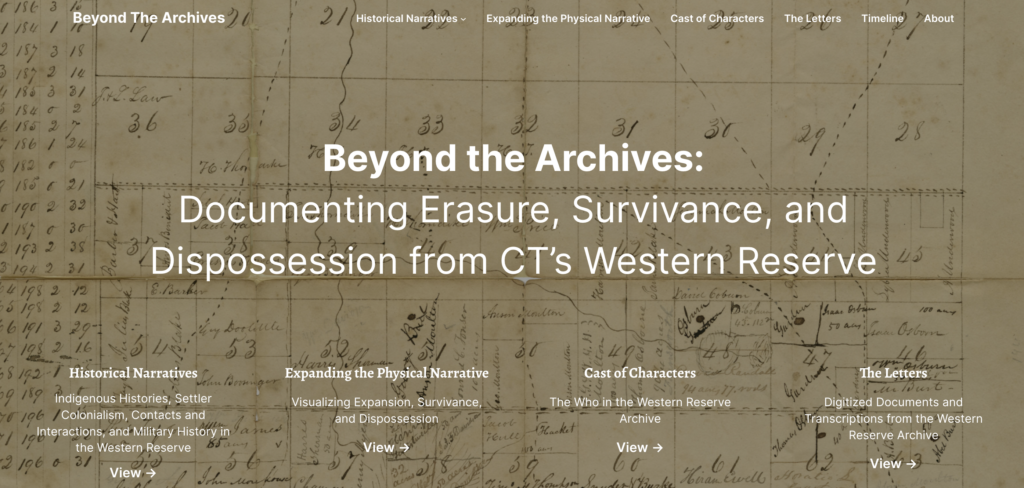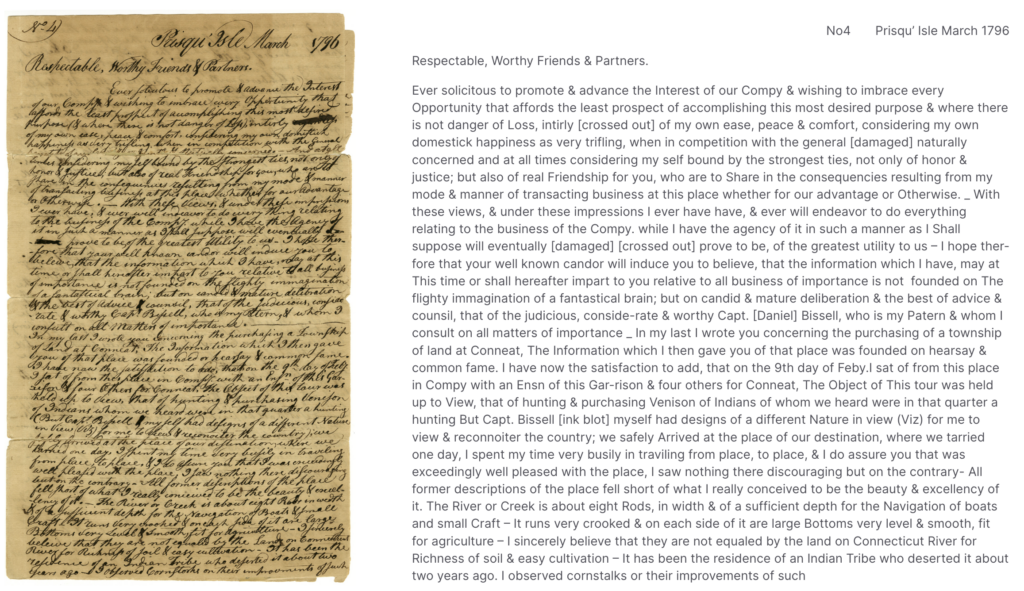Working with the Wyles Family Western Reserve Collection of letters in Special Collections & Archives and the Digital Scholarship & Curriculum Center, students in Kris Klein Hernández’s Borders, Empire, & Immigration History course this semester developed Beyond the Archives: Documenting Erasure, Survivance, and Dispossession from CT’s Western Reserve as a digital archive and scholarly website.
Professor Hernández replaced his standard research paper assignment with the collaborative digital project in order to give students the opportunity to 1) work directly with primary sources, 2) collaborate on one collective project, and 3) create a public-facing website that is useful for a broad audience and can be developed further by future students in the course.

The project took place in a scaffolded set of processes over the course of the semester, all while students continued to build a foundation of knowledge in indigenous histories, settler colonialism, histories of indigenous sovereignty and immigration policy in the US, and other topics related to the course. First, students worked in the Linda Lear Center for Special Collections & Archives, where they transcribed letters from the Wyles Family Western Reserve Collection. These letters dating from the late-18th and early-19th centuries concern parcels of land on the shores of Lake Erie in present-day Ohio, which were owned by the Connecticut Land Company and marketed and sold to settlers moving westward from Connecticut.

Students then worked in research groups representing different areas and scholarly exercises of the history discipline: Historians of Indigenous History, Historians of Settler Colonialism, Historians of Contacts & Interactions, Military Historian of the Western Reserve, Biographers of the Families Wyles and Bissell, and the World Builders tasked with geographical contextualization of the project.
The class met with the Digital Scholarship & Curriculum Center for a web design meeting in which students considered the scholarly aims of the website they would create, their audiences, how to structure the website in ways that would help make their arguments, and how they imagined drawing connections between different aspects of the site. The site was then drafted by myself, based upon those discussions, and students were taught how to upload their content to the relevant pages. Presentations at the end of the semester focused on the goals of each group’s contribution to the website and the intellectual challenges presented by both the topics themselves and the task of presenting them together in a cohesive public project.
Professor Hernández writes in the introduction: “Beyond the Archives is a digital gathering place to witness, in action, the concepts of ‘expansion,’ and ‘settler colonialism’: letters where settlers discuss dispossession. […] Sources are what structure historical narratives. […] Yet, this digital project demonstrates what historians can do to underline the erasures of Indigenous voices and gendered voids in these documents,” which encapsulates the intellectual journey students took across the course of the project. Hernández plans to expand upon the project in future iterations of the course, whether through further engagement with the same collection or working with other related documents in Connecticut College’s Special Collections & Archives.
